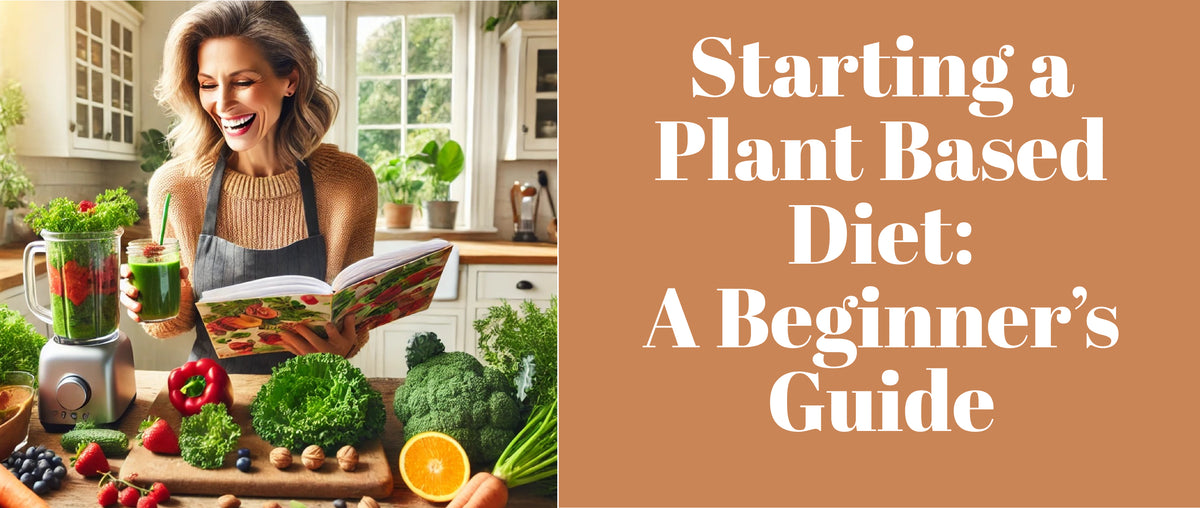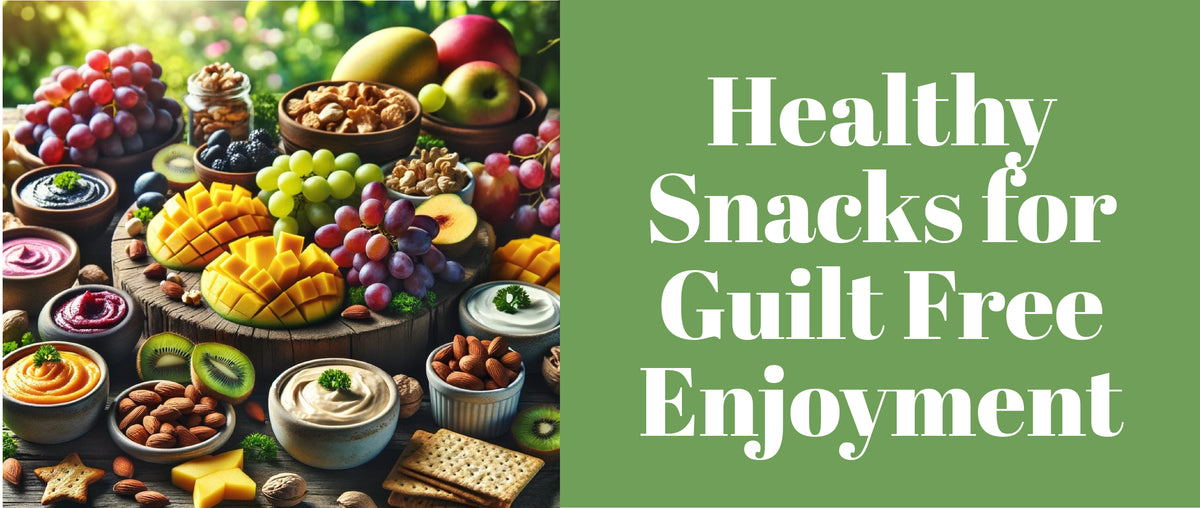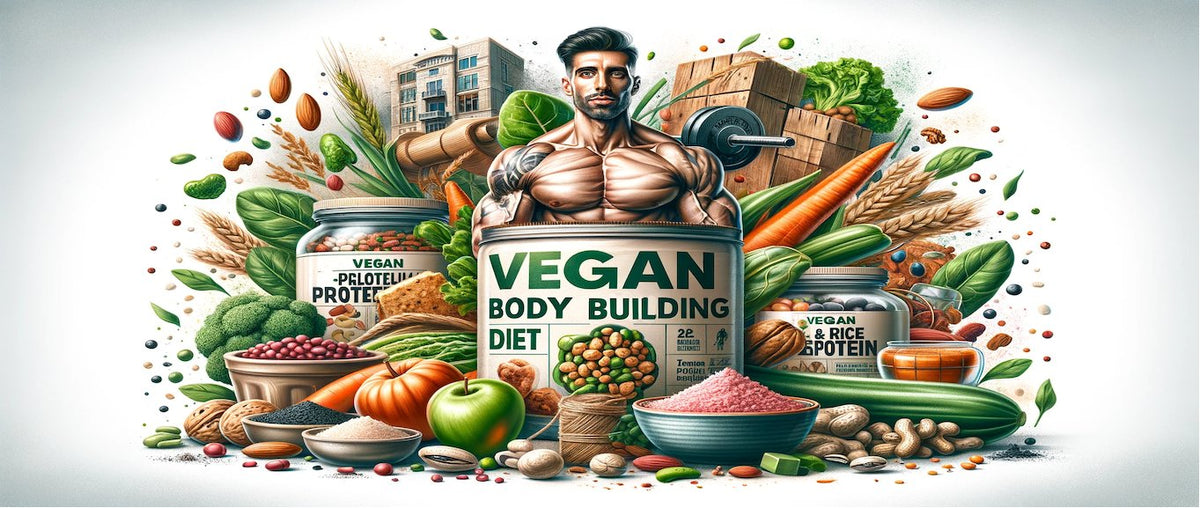Starting a Plant-Based Diet: A Beginner’s Guide
A Plant Based diet emphasizes foods primarily from plants. This includes not only fruits and vegetables but also nuts, seeds, oils, whole grains, legumes, and beans. You don’t have to give up eating meat or animal products entirely, but more of your food should come from plant sources.
Key Takeaways
- Plant Based diets are centered around foods derived from plants, including vegetables, grains, nuts, seeds, legumes, and fruits.
- Health benefits include weight management, reduced risk of chronic diseases, and improved overall health.
- Environmental benefits involve reduced carbon footprint and conservation of resources.
- Ethical benefits include animal welfare and sustainability.
- Successful transition involves gradual changes, proper meal planning, and focusing on key nutrients.
What is a Plant Based Diet?
A plant based diet focuses on consuming whole, minimally processed plant foods. This diet can vary widely and includes different degrees of animal product exclusion.
Definition
A Plant Based diet is one that prioritizes plant foods. It’s not necessarily vegan or vegetarian; it can include small amounts of animal products. The emphasis is on plant foods like fruits, vegetables, grains, nuts, seeds, legumes, and Plant Based alternatives like Vegan Cheese and Oat Milk.
Difference Between Plant Based and Vegan Diets
While both diets emphasize plant foods, a Unlock the Benefits of Vegan Diet - Health Combined! excludes all animal products, including dairy, eggs, and honey. A Plant Based diet can include small amounts of animal products but focuses on plant-derived foods.

Types of Plant Based Diets
1. Vegetarian: Excludes meat but may include dairy and eggs.
2. Vegan: Excludes all animal products.
3. Flexitarian: Primarily Plant Based but includes occasional meat or fish.
4. Whole Food Plant Based: Focuses on unprocessed plant foods and excludes processed foods and oils.
Benefits of a Plant Based Diet
Health Benefits
1. Weight Management: Plant Based diets are rich in fiber and low in calories, aiding in weight loss and maintenance.
2. Reduced Risk of Chronic Diseases: Lower risk of heart disease, diabetes, and certain cancers due to high intake of fruits, vegetables, and whole grains.
3. Improved Overall Health: Better digestion, improved energy levels, and lower cholesterol levels.
Environmental Benefits
1. Reduced Carbon Footprint: Plant Based foods generally require fewer resources to produce than animal products.
2. Conservation of Resources: Lower water usage and less deforestation.
Ethical Benefits
1. Animal Welfare: Reducing consumption of animal products can lessen the demand for factory farming.
2. Sustainability: Plant Based diets can contribute to more sustainable food systems.
Getting Started with a Plant Based Diet
Assessing Your Current Diet
Evaluate what you currently eat and identify areas where you can replace animal products with Plant Based foods.
Setting Realistic Goals
Start with small changes, like having one Plant Based meal a day, and gradually increase as you become more comfortable.
Stocking Your Kitchen with Plant Based Essentials
- Vegetables and Fruits: Fresh, frozen, or canned without added sugars or salts.
- Whole Grains: Brown rice, quinoa, oats, and whole-wheat products.
- Legumes: Beans, lentils, chickpeas.
- Nuts and Seeds: Almonds, chia seeds, flaxseeds.
- Plant Based Alternatives: Vegan Cheese, Oat Milk, Cashew Butter, Unsalted Butter, Garlic Butter.
Meal Planning and Preparation Tips
1. Plan Ahead: Make a weekly meal plan that includes a variety of Plant Based foods.
2. Batch Cooking: Prepare large quantities of grains, legumes, and vegetables that can be used in different meals throughout the week.
3. Healthy Snacks for Kids: Keep Healthy Snacks for Kids like fruit, nut butter, and whole-grain crackers on hand.
Key Nutrients to Focus On
Transitioning to a Plant Based diet means paying close attention to certain nutrients that are commonly found in animal products. Here’s how to ensure you’re getting everything you need:
Protein Sources
Plant Based protein is essential for maintaining muscle mass and overall health. Here are some high-quality sources:
- Legumes: Beans, lentils, chickpeas
- Nuts and Seeds: Almonds, chia seeds, hemp seeds
- Soy Products: Tofu, tempeh, edamame
- Whole Grains: Quinoa, brown rice, oats
- High Protein Vegan Food: Seitan, pea protein, and products like high protein vegan breakfast options
Vitamins and Minerals
1. Vitamin B12: Since B12 is primarily found in animal products, consider fortified foods like Plant Based milk or cereals, or take a supplement.
2. Iron: Found in spinach, lentils, and tofu. Enhance absorption by pairing with vitamin C-rich foods like oranges and strawberries.
3. Calcium: Crucial for bone health, found in fortified Oat Milk, tofu, and leafy greens.
4. Omega-3 Fatty Acids: Important for heart and brain health. Sources include flaxseeds, chia seeds, and walnuts.
5. Vitamin D: Get it from sun exposure, fortified foods, or supplements.
6. Zinc: Essential for immune function, found in beans, nuts, and seeds.
Supplements
While it’s best to get nutrients from food, supplements can help fill any gaps:
- Vitamin B12: 2.4 mcg per day is recommended for adults.
- Vitamin D: 600-800 IU per day, especially in winter months or for those with limited sun exposure.
- Omega-3: Consider an algae-based supplement for EPA and DHA.
Common Myths about Plant Based Diets
Myth 1: Plant Based Diets Lack Protein
Fact: Plenty of Plant Based foods are rich in protein, including beans, lentils, tofu, and quinoa. You can easily meet your protein needs with a well-planned diet.
Myth 2: Plant Based Diets Are Expensive
Fact: While some specialty products like vegan cheese and Plant Based protein powders can be pricey, basic staples like beans, rice, and seasonal vegetables are often cheaper than meat and dairy.
Myth 3: You Can’t Build Muscle on a Plant Based Diet
Fact: Many athletes and bodybuilders thrive on a Vegan Bodybuilding Diet. High-protein plant foods like seitan, tofu, and legumes, combined with proper training, can support muscle growth and performance.
Myth 4: Plant Based Diets Are Boring and Bland
Fact: A Plant Based diet can be incredibly diverse and flavorful. With a variety of fruits, vegetables, grains, and spices, you can create delicious and exciting meals.
Myth 5: You Need Dairy for Strong Bones
Fact: Calcium can be found in many plant foods like fortified plant milks, leafy greens, and tofu. Coupled with weight-bearing exercise, these can support bone health.
Tips for Success
Gradual Transition Strategies
1. Start Small: Begin with one Plant Based meal per day and gradually increase.
2. Meatless Mondays: Dedicate one day a week to Plant Based eating.
3. Substitute Smartly: Replace animal products with Plant Based alternatives like vegan butter and parmesan cheese.
Finding Support and Resources
1. Join a Community: Find local or online groups for Plant Based eating.
2. Read Books and Blogs: Resources like Forks Over Knives and Grabenord’s blog can provide recipes and inspiration.
3. Consult a Nutritionist: For personalized advice and meal plans.
Staying Motivated
1. Set Clear Goals: Whether it’s health improvement, environmental impact, or ethical reasons, having clear goals can keep you motivated.
2. Track Your Progress: Keep a food diary or use apps to monitor your nutrient intake.
3. Celebrate Successes: Reward yourself for milestones, like completing your first Plant Based month.
Sample Meal Plan for Beginners
Breakfast
- Smoothie: Blend spinach, banana, chia seeds, and Oat Milk.
- High Protein Vegan Breakfast: Tofu scramble with veggies and whole-grain toast.
Lunch
- Salad: Mixed greens with chickpeas, avocado, quinoa, and a tahini dressing.
- Sandwich: Whole-grain bread with cashew butter, sliced apples, and a sprinkle of cinnamon.
Dinner
- Stir-Fry: Tofu, broccoli, bell peppers, and brown rice, seasoned with soy sauce and ginger.
- Pasta: Whole grain pasta with marinara sauce, sautéed vegetables, and vegan cheese.
Snacks and Desserts
- Healthy Snacks for Kids: Sliced veggies with hummus, fruit salad, or high protein snacks like roasted chickpeas.
- Dessert: Chia pudding made with Oat Milk, vanilla, and maple syrup.
Shopping List for Beginners
Staple Foods
- Whole Grains: Brown rice, quinoa, oats
- Legumes: Black beans, lentils, chickpeas
- Nuts and Seeds: Almonds, chia seeds, flaxseeds
Seasonal Fruits and Vegetables
- Leafy Greens: Spinach, kale
- Root Vegetables: Sweet potatoes, carrots
- Fruits: Apples, bananas, berries
Plant Based Alternatives
- Vegan Cheese
- Unsalted Butter and vegan butter
- Oat Milk
- Cashew Butter
- Low Fat Mayonnaise
Frequently Asked Questions
How to Handle Social Situations?
- Plan Ahead: Inform your host about your dietary preferences or bring a dish to share.
- Restaurants: Look for vegan-friendly options or modify menu items.
What to Do When Eating Out?
- Research: Check menus online before choosing a restaurant.
- Communicate: Don’t hesitate to ask servers about Plant Based options.
How to Deal with Cravings for Non-Plant Based Foods?
- Find Alternatives: Craving cheese? Try Vegan Cheese. Want something sweet? Go for fruit or a Healthy Snack for Kids.
- Stay Hydrated: Sometimes thirst can be mistaken for hunger.
Conclusion
Adopting a plant based diet is a journey that can lead to numerous health, environmental, and ethical benefits. Start gradually, stay informed, and find delicious and nutritious Plant Based foods to enjoy. Remember, every small change contributes to a healthier you and a healthier planet.
If you are a vegan, looking to dine something vegan in your city, check out our list of vegan restaurants in India.










